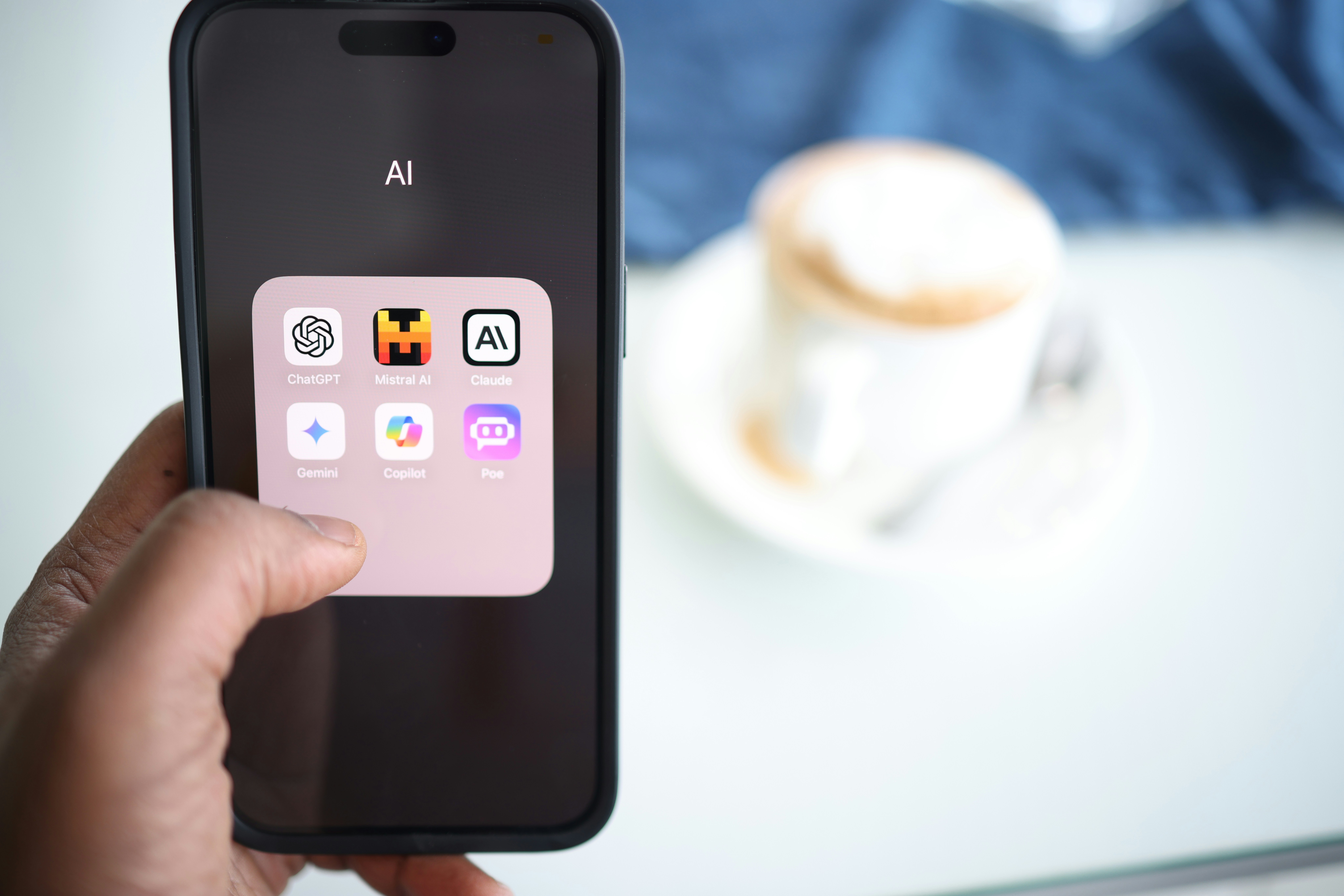Productivity
Revolutionizing communication: The rise of AI chatbots in 2024
The digital landscape is undergoing a transformative change, primarily influenced by artificial intelligence technologies.

Understanding AI chatbots
To fully appreciate the impact of AI chatbots, it is vital to understand what they are and how they function. At their core, chatbots are programs designed to simulate conversation with human users, especially over the Internet. These tools leverage language processing to engage in dialogue, providing responses that are often indistinguishable from those of a human.
Defining AI chatbots
AI chatbots can be defined as software applications used to conduct online chat conversations through text or auditory methods. They are powered by artificial intelligence and can analyze user input, learn from interactions, and use that information to improve future conversations. By utilizing natural language processing (NLP), these tools enable computers to understand, interpret, and generate human-like responses.
The technology behind AI chatbots
The technology powering chatbots combines machine learning algorithms with large datasets to train the models. Advanced neural networks enable these bots to respond to queries effectively. In addition, deep learning techniques have revolutionized the way chatbots can understand context and sentiment, making them more intuitive in their interactions.
Furthermore, integration with cloud computing allows for scalable solutions that can handle vast amounts of interaction without compromising speed or performance. As a result, AI chatbots have become essential tools for businesses and individuals seeking efficient communication channels.
Moreover, the versatility of AI chatbots extends beyond simple customer service inquiries. They can be programmed for various applications, including personal assistants, educational tools, and even mental health support systems. For instance, in the realm of education, chatbots can provide students with instant feedback on their queries, guiding them through complex subjects and fostering a more interactive learning environment. This adaptability not only enhances user experience but also opens up new avenues for engagement in diverse fields.
Additionally, the implementation of AI chatbots is becoming increasingly sophisticated, with features like voice recognition and emotion detection being integrated into their frameworks. This allows them to not only respond to what users say but also to gauge their emotional state, tailoring responses accordingly. Such advancements are paving the way for more empathetic and personalized interactions, making AI chatbots not just tools for communication but companions that can understand and respond to human emotions in a meaningful way.
The evolution of AI chatbots
The journey of AI chatbots is marked by significant milestones that have paved the way for their current capabilities. Starting from simple rule-based systems, the technological advancements have drastically changed how chatbots operate today.
Early stages of AI chatbots
AI chatbots have humble beginnings; they started as basic programs that could respond to simple queries in a limited capacity. Notably, the introduction of Eliza in the 1960s marked one of the first instances of a chatbot engaging users. Although early iterations were rudimentary, they set the foundation for more complex AI systems to emerge. Following Eliza, other early chatbots like PARRY attempted to simulate more nuanced human interactions, showcasing the potential for chatbots to engage in more sophisticated dialogues, albeit still within a constrained framework.
Current state of AI chatbots
As we move into 2024, AI chatbots have experienced exponential growth. They are now utilized across several industries—in customer service, healthcare, and even personal assistance. Chatbots today are capable of processing natural language at a level where they can manage intricate conversations, hold context over multiple exchanges, and provide insightful recommendations based on user behavior. This evolution is largely attributed to advancements in machine learning algorithms and natural language processing techniques, which have significantly enhanced their ability to understand and generate human-like responses.
Moreover, organizations have embraced chatbots for purposes ranging from customer support to lead generation, making them indispensable components of their operational strategies. The integration of chatbots with other technologies, such as voice recognition and sentiment analysis, has further broadened their applications. For instance, in the healthcare sector, chatbots are now being used not only for appointment scheduling but also for providing preliminary diagnoses and health advice, thereby improving patient engagement and streamlining administrative processes. As AI continues to evolve, the potential for chatbots to transform user experiences and operational efficiencies remains vast and exciting.
The Impact of AI Chatbots on Communication
AI chatbots have significantly altered communication dynamics, fostering new ways for people and businesses to connect effectively. This impact is noticeable both in personal communications and in business interactions.
AI chatbots in personal communication
For individuals, AI chatbots serve as virtual companions, providing assistance in various day-to-day tasks. From scheduling appointments to managing reminders, chatbots enhance personal efficiency, allowing users to prioritize their tasks more effectively. Popular messaging platforms now incorporate chatbot functionalities to facilitate quicker interactions among friends and family.
Notably, chatbots are also being integrated into mental health services, providing support and resources for individuals seeking assistance, thereby expanding accessibility for mental health resources. These chatbots can engage users in conversations that promote emotional well-being, offering coping strategies and even connecting them with professional help when necessary. This innovative approach not only reduces the stigma associated with seeking mental health support but also ensures that help is available at any time, making it a vital tool for many.
AI chatbots in business communication
In the business realm, AI chatbots have revolutionized customer engagement strategies. They facilitate instant communication, enabling companies to address customer inquiries around the clock. This 24/7 availability leads to greater customer satisfaction, as users no longer have to wait for business hours to receive assistance. Furthermore, chatbots can handle a multitude of inquiries simultaneously, significantly reducing wait times and freeing human agents to tackle more complex issues that require a personal touch.
Additionally, AI chatbots streamline internal communications, managing everything from employee inquiries to systematic onboarding processes, thus enhancing overall organizational efficiency. By automating routine tasks, such as answering frequently asked questions or providing updates on project statuses, chatbots allow employees to focus on higher-level strategic initiatives. This not only boosts productivity but also fosters a more engaged workforce, as employees can spend more time on meaningful work rather than administrative tasks. As businesses continue to adapt to a rapidly changing landscape, the role of AI chatbots in facilitating seamless communication is likely to grow even more significant.
Future Predictions for AI Chatbots
As we look ahead, the future of AI chatbots appears promising with several advancements anticipated that will influence how they operate and assist users.
Advancements expected in AI chatbots
In 2024 and beyond, significant enhancements in AI capabilities are expected. The integration of more advanced emotional recognition will allow chatbots to not just understand language but also interpret emotional context. Such advancements could further improve user experience by facilitating more empathetic responses. For instance, a chatbot equipped with this technology could detect frustration in a user's tone and respond with calming language or offer solutions tailored to alleviate their concerns, thereby fostering a more supportive interaction.
Additionally, the convergence of AI chatbots with other technologies, such as augmented reality (AR) and virtual reality (VR), will likely create immersive experiences where users can interact with chatbots in virtual environments. Imagine a scenario where a customer can have a virtual shopping assistant guide them through a store, providing real-time information about products and promotions while they navigate the aisles. This integration could redefine customer service and engagement, making it more interactive and personalized than ever before.
Potential challenges for AI chatbots
Despite their many advantages, AI chatbots face challenges that could impede their efficacy. Privacy concerns are paramount, as users may hesitate to share personal information with bots. Ensuring data protection will be vital for the continued acceptance of chatbot technology. Developers will need to implement robust encryption methods and transparent data usage policies to reassure users that their information is secure. Furthermore, educating users about how their data is handled can help build trust and encourage more open interactions with chatbots.
Moreover, the potential for misinformation and misunderstanding in communications with AI is a consideration that developers must address. As interactions become increasingly autonomous, ensuring the accuracy of information provided by chatbots is crucial to maintaining user trust. Developers may need to incorporate advanced verification systems that cross-reference information from credible sources before presenting it to users. Additionally, ongoing training and updates to the AI's knowledge base will be essential to minimize errors and enhance the reliability of chatbot responses, thereby ensuring that users receive accurate and relevant information consistently.
The Role of AI Chatbots in 2024
As we navigate through 2024, AI chatbots are expected to solidify their roles in our daily communications significantly. Their influence will be felt across both individual and organizational levels, fostering connectivity and efficiency.
Anticipated uses of AI chatbots
The anticipated applications of chatbots are vast. They will continue to serve not only in customer relations but also in educational sectors, offering personalized learning experiences based on student interactions. Educational institutions can utilize chatbots for tutoring and answering FAQs, thereby enhancing the learning environment.
Moreover, sectors like healthcare can utilize chatbots for patient interaction, managing appointments, and health assessments, exemplifying how they can enhance traditional service delivery systems.
The influence of AI chatbots on society
Ultimately, AI chatbots are poised to make profound impacts on society as they facilitate seamless communication. By bridging gaps between people and technology, chatbots will become integral to workplaces and personal interactions, shaping our expectations of digital communication.
As AI chatbots evolve, so will their roles—transitioning from simple tools to trusted companions in our multi-faceted lives. The future looks bright as we witness this revolution in communication technology.
Find out how Seren can help you
Transform your customer service with AI solutions that make it more efficient, reduce costs, and improve the customer experience. Learn how Seren can help you use the top AI ideas tailored to your business needs.
Request a Seren demo today and take the first step towards better customer service with AI!
Sign up to
Seren today.
Only $32/month.
Recent articles about AI
%20copy.jpg)
What is RAG AI?
Find out how RAG AI integrates business data to enhance AI's response specificity and reliability.

How to Use AI as an Assistant
A practical guide on how to use AI as an assistants can help you with day-to-day.

The Top 10 Best AI Assistants
Read our review of the top 10 AI assistants available.
AI that doesn't share your information
Setup a new customizable AI assistant in less then 2 minutes with no AI or developing experience required.

